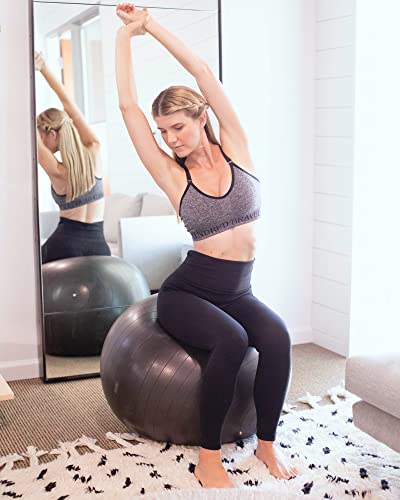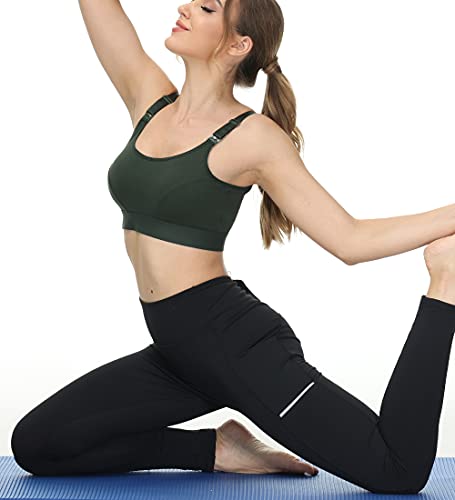This is a guest post.
Whether you’re a new mom, a busy professional, or both, physical fitness helps facilitate recovery from stressful times. It releases feel-good chemistry that helps reduce your body’s stress response, both in the moment and in the future. It improves overall quality of life, adds structure that requires setting and achieving attainable long- and short-term goals, improves mental and physical health and increases self-esteem.
If you’re a mom who’s ready to take the plunge into making it part of your self-care plan, here’s what you need to know:
Fitness and mental health
Long-term stress can actually damage your brain, but not all hope is lost. While it’s not a panacea, exercise does increase brain cell generation, releasing natural antidepressants such as endorphins and other feel-good neurotransmitters that boost your mood naturally. Physical exertion reduces stress hormones such as cortisol, which in turn, reduces feelings of anxiety and depression.
2020 and 2021 brought with them a cornucopia of stressors. A pandemic, social unrest, political issues, and economic troubles were everywhere, and add to that personal concerns and you have a recipe for chronic stress.
Fitness therapy encourages chronically-stressed moms to challenge themselves. Seeing the results of your hard work—improved health, less stress, more energy to play with your kids, and increased strength and balance, just to name a few—is rewarding.
Choosing your workout
Exercise programs certainly aren’t a one-size-fits-all proposition. For some moms, running relieves stress while others might consider it physically taxing. However, the key is to find the right workouts that are effective for you. And there’s nothing wrong with mixing up a variety of activities and exercises so that your routine remains challenging, and you avoid the risk of boredom.
Many moms find these activities to be challenging and satisfying:
- Power walking (walking can actually make labor easier)
- Weight training
- Swimming
- Cardio (Zumba, Spin, CrossFit)
- Pilates
- Boxing
- Ballet-inspired Barre or pole dancing fitness classes
- HIIT (High Intensity Interval Training)
- Playing tag, dancing, or doing other heart-pumping activities with their kids
The trick? Explore workouts that challenge you, but don’t strain you. If you’ve not been physically active for a while, start slowly to reduce the chance of injury. Put on some positive music to get you moving. Also, whenever possible, try to exercise outdoors; the vitamin D3 you’ll receive from the sun will enhance your routine and help naturally reduce stress.
Think outside the box
If the usual options like running and swimming don’t excite you, you might find these challenges perfect for your stage in life:
Yoga therapy
This solitary, low-impact activity isn’t a competition in which there are winners and losers. It involves meditation and teaches mindfulness, as those who practice it gradually learn skills to live in the moment. You might find that you learn to be more patient with your kids and be more present with them thanks to the mindfulness skills yoga teaches you.
Hiking therapy
Spending time in nature encourages people to recognize their place in the universe, understand the scale of the world and cultivate spiritual feelings. Whether you choose a more strenuous or relaxing path, moving your legs and getting your heart pumping releases natural, feel-good endorphins. Like surfing, as hikers push and challenge themselves, hiking increases self-confidence. Plus, it’s a great activity to enjoy with the whole family.
Boating therapy
Boating—especially sailing—makes physical and mental demands. You must learn how to control a boat in open water while controlling and adjusting sails based on the wind and direction you want to travel. Similar to hiking, boating shows the power of nature. Whether you sail, kayak, or canoe, you’ll improve physical strength, mental acuity, self-confidence and determination.
Rope course therapy
Rope courses often require teamwork, and when you complete a course with other people, you’re accepting and giving encouragement and support to successfully complete the course.
To wrap up
When moms choose to incorporate fitness into their lifestyle, they give themselves the tools for the present and the future. Working toward a fitness goal inevitably builds your self-esteem, confidence and physical and mental health. You’ll reap the rewards long after your exercise session ends, and you’ll be setting a great example for your children to practice healthy habits.
Think you have no time to exercise? Check out these 22 actionable tips to make time for self-care when you have no time.
- How moms can make physical fitness part of their stress management plan - January 16, 2022
- Five best self-care tips for breastfeeding mothers - January 7, 2022








Pingback: Will I lose weight after I stop breastfeeding?
Pingback: Can my husband help increase my milk supply?
Pingback: Painless labor: How to give birth naturally without drugs